Robyn Ness
Posts tagged with qualitative
Showing 1 - 10 of 44 items
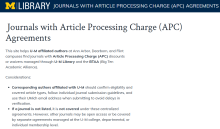
As part of the process to launch a new library application that helps U-M researchers and authors at our three campuses locate publications covered under institutional open access agreements, usability testing was critical to the successful development of a usable, sustainable tool.

In 2023, the U-M Library conducted its first comprehensive survey across students and employees. This blog post covers my specific research exploring the experiences of people with disabilities in the libraries, and their struggles with accessibility by analyzing data from the campus-wide survey. The goal of this research was to reveal struggles people with disabilities are facing in the libraries. By improving the library spaces with accessibility in mind, everyone – not just those with disabilities – benefits.
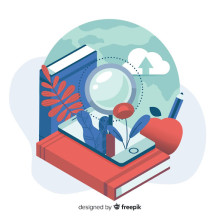
What are the main characteristics of search queries submitted from the “What can we help you find” search in the lib.umich.edu homepage, and how relevant are results in our U-M Library Search “Everything” results? Learn how our small team gathered, categorized, and analyzed queries, and their results to reveal trends and insights from search query behaviors that will help us improve people’s experience finding promising materials in the Library.

In April 2023, the U-M Library opened a newly renovated floor, the Clark Commons, on the 3rd floor of the Shapiro Library. During the first year the Clark Commons was open (April 2023-May 2024), we collected a number of data points to assess whether the design goals for the public spaces on the floor were being met and to try to capture use trends. Throughout this initiative, a combination of qualitative and quantitative methods were used to capture both attitudinal and behavioral data in order to document lessons learned from this renovation that could be applied during future renovations.
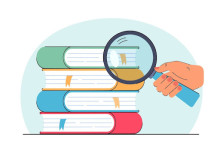
This blog post explores the challenges faced by novice users of the University of Michigan's Library Search interface, drawing on user research conducted with undergraduate students and librarians. The research aimed to understand how students approach library searches, to identify their pain points, and learn how they navigate the Everything results page. By gaining insights into these areas, the research aimed to identify opportunities for improvement and inform the design of more user-friendly library search tools.

The findings from a qualitative study on users of open access (OA) books reveal a wide range of needs and impacts. The data comes from two collections: one of OA books published by Lever Press (https://www.leverpress.org/) and the other of backlist books turned OA by the Big Ten Open Books project (https://bigtenopenbooks.org/). While the samples are small, the findings highlight the importance of qualitative approaches to capturing the variety of reader and, more broadly, user experiences.

This blog post reflects on the learning experience I had as a novice user research (UX) intern at the U-M Library. Through this nurturing and eye-opening experience, I enhanced my understanding of research operation, the activities which support the user research conducted by library employees in the Design & Discovery unit of the library.

We know very little about how authors and readers experience the impact of open-access (OA) books. Usage metrics and citations obscure their humanity. In Fall 2023, we interviewed authors and readers of monographs published as OA by the University of Michigan Press. Our qualitative research project documented their experiences, used AI to discover patterns in their responses, and provided evidence-based recommendations for improving OA book publishing.
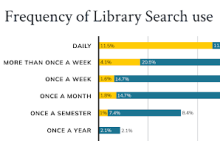
The U-M Library UX + Design Team conducted a benchmark survey in late 2022 aiming to understand people’s experience with Library Search. Objectives included measuring user satisfaction, identifying audience needs, and comparing results with Harvard University’s survey using the same methodology. Survey findings guided the development of the Library Search Product Statement as well as user centered improvements such as implementing LibKey Direct-to-PDF API, and refining catalog results filters.
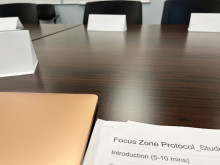
In Fall 2022, the Library Environments department began a pilot of two designated “zoned” spaces in response to user feedback asking for more information about what to expect from a study space. We conducted focus groups and integrated participatory design to learn about how users are perceiving and experiencing these labeled spaces.